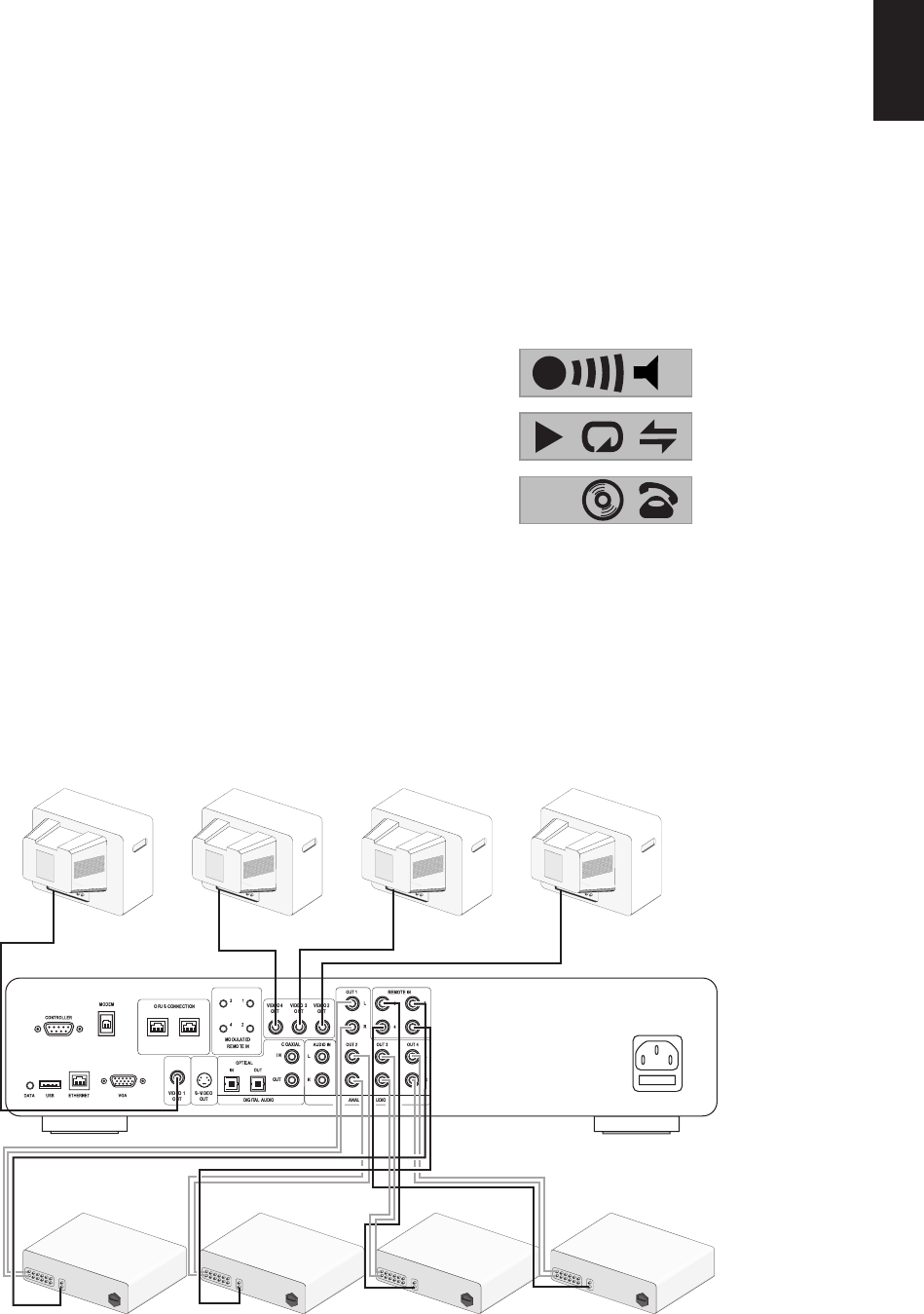
27
ENGLISH
USING MUSIC SERVER IN A
MULTIROOM SYSTEM
The Music Server DH9300 is capable of playing different
music in up to four rooms simultaneously. This chapter
explains how the Music Server can be controlled from the
remote room and how the TV interface has been designed
to allow several users to access the music library.
BASIC CONFIGURATION
The rear panel of the Marantz Music Server has four Video
Out connectors to allow up to four televisions to be
connected directly to the Music Server as well as four
independent analogue audio outputs and four Remote In
data connections.
The diagram below shows the Music Server in a basic
multiroom configuration. The connections required are as
follows:
• Video Out 1, 2, 3 & 4 are connected to the
composite input of a suitable television in each
room.
Note: The same TV interface picture is distributed to all
four televisions hence the order in which they are
connected is not important.
• Analogue Audio 1, 2, 3 & 4 are each connected to
the stereo input of an amplifier.
Note: If one of the amplifiers has a digital input the Digital
Audio Out (coaxial or optical) connector may be used in
preference to analogue output 1.
• Remote In 1, 2, 3, & 4 are connected to the
System Control connection of a suitable amplifier.
Note: The Marantz System Control connection allows
Marantz components to be linked together for integrated
Stereo amplifier with System
Control connector
TV with SCART or
composite input
remote operation. The System Control interface allows an
amplifier to act as the remote control centre for an entire
Marantz system; in this installation the System Control
compatible amplifier acts as an infrared receiver for the
remotely located Music Server.
REMOTE CONTROL USE IN A MULTIROOM
SYSTEM
The multiroom Remote In connection allows the Music
Server to determine which remote room is currently
browsing the music library. For example if a user in room
two presses a key on the Music Server remote control the
TV user interface will automatically switch to the
appropriate output for that room (by default this is output 2).
In order to prevent users in other rooms from browsing the
library, the TV interface control is given exclusively to the
user in room two for a short period of time. This can be
seen on the display below:
11
The number inside the circle indicates which remote
currently has control of the TV interface. The bar to the
right of this indicates how long the user has before the TV
interface is available for other users to access. The
number to the right of this indicates which output this user
is currently controlling.


















